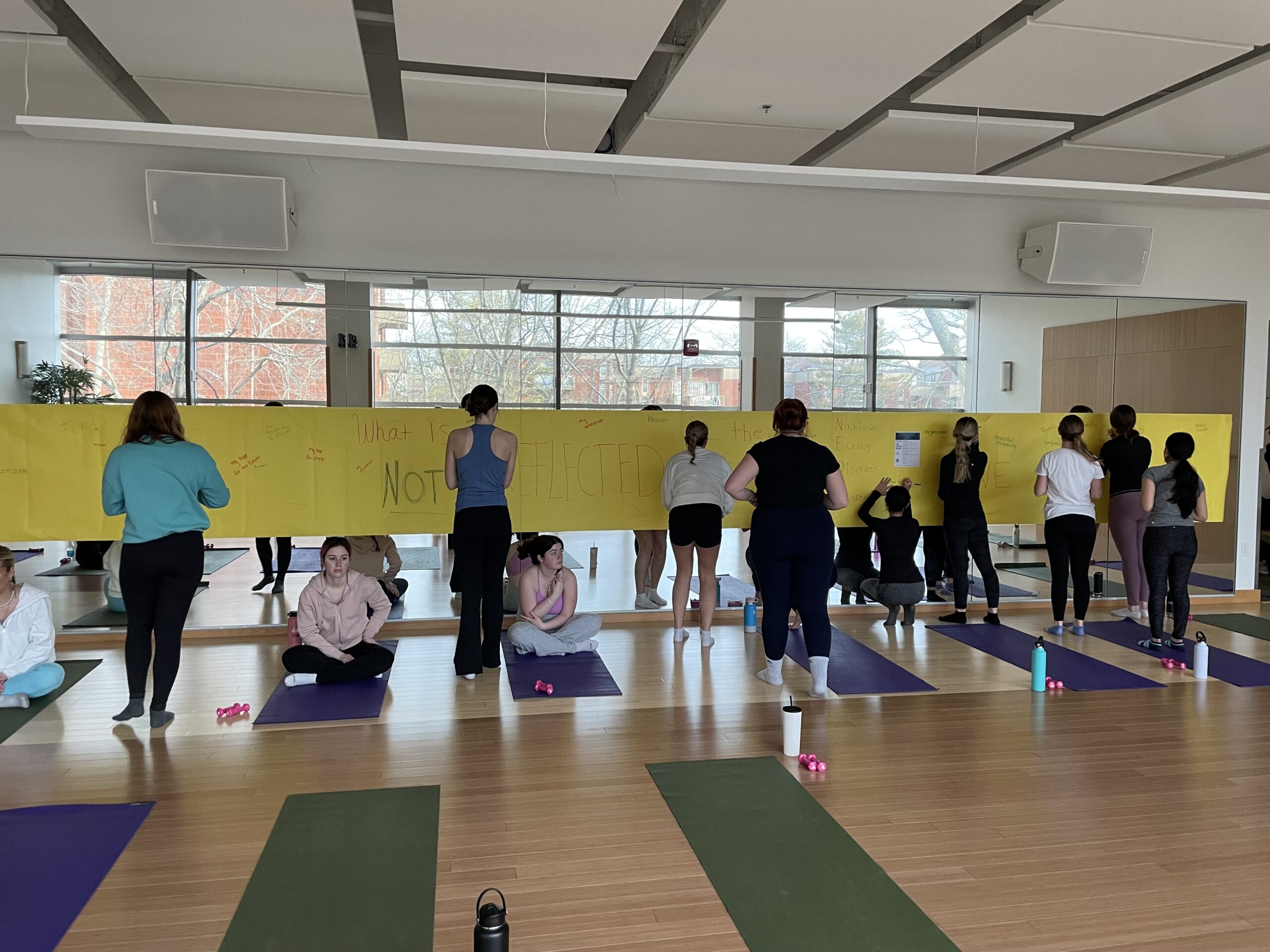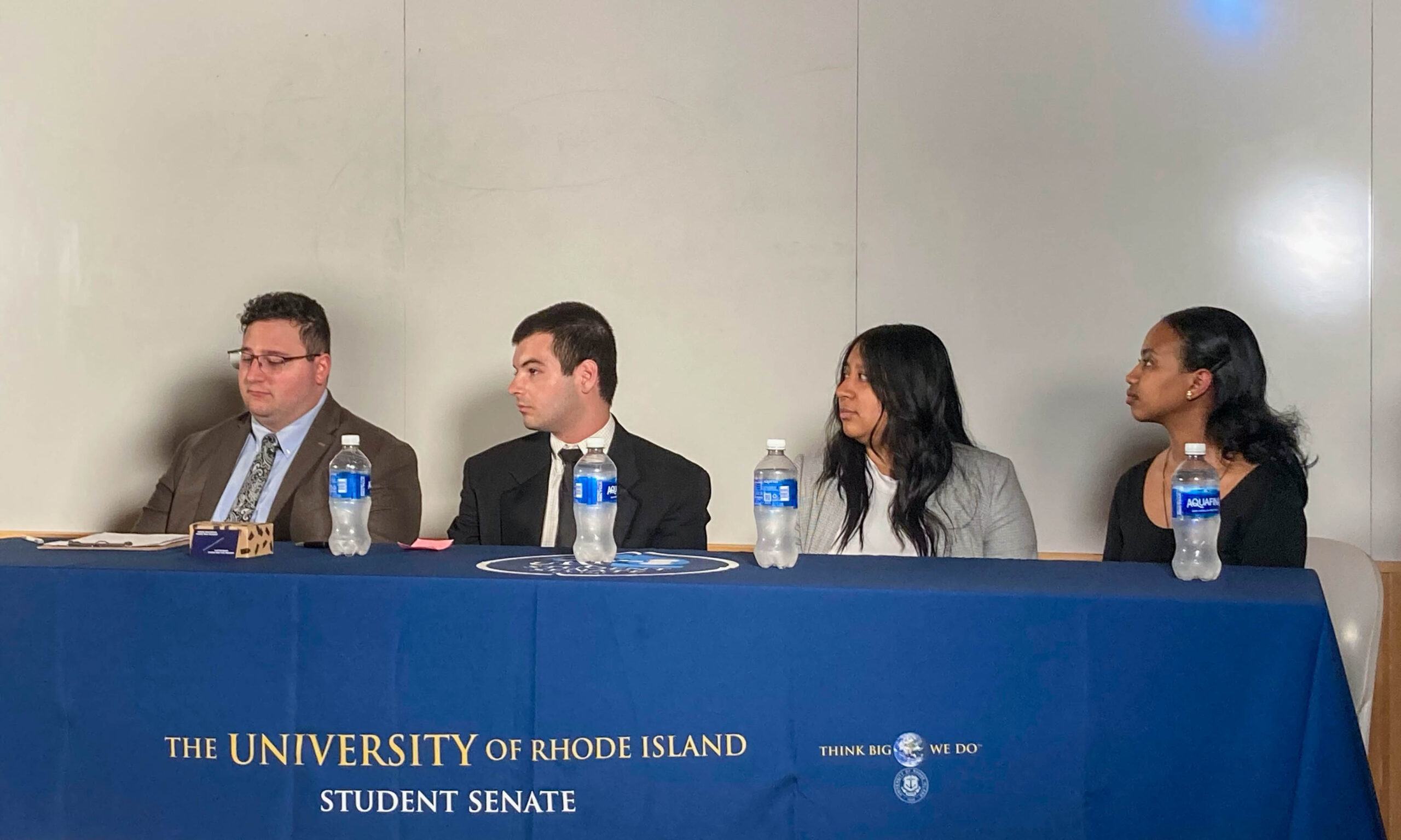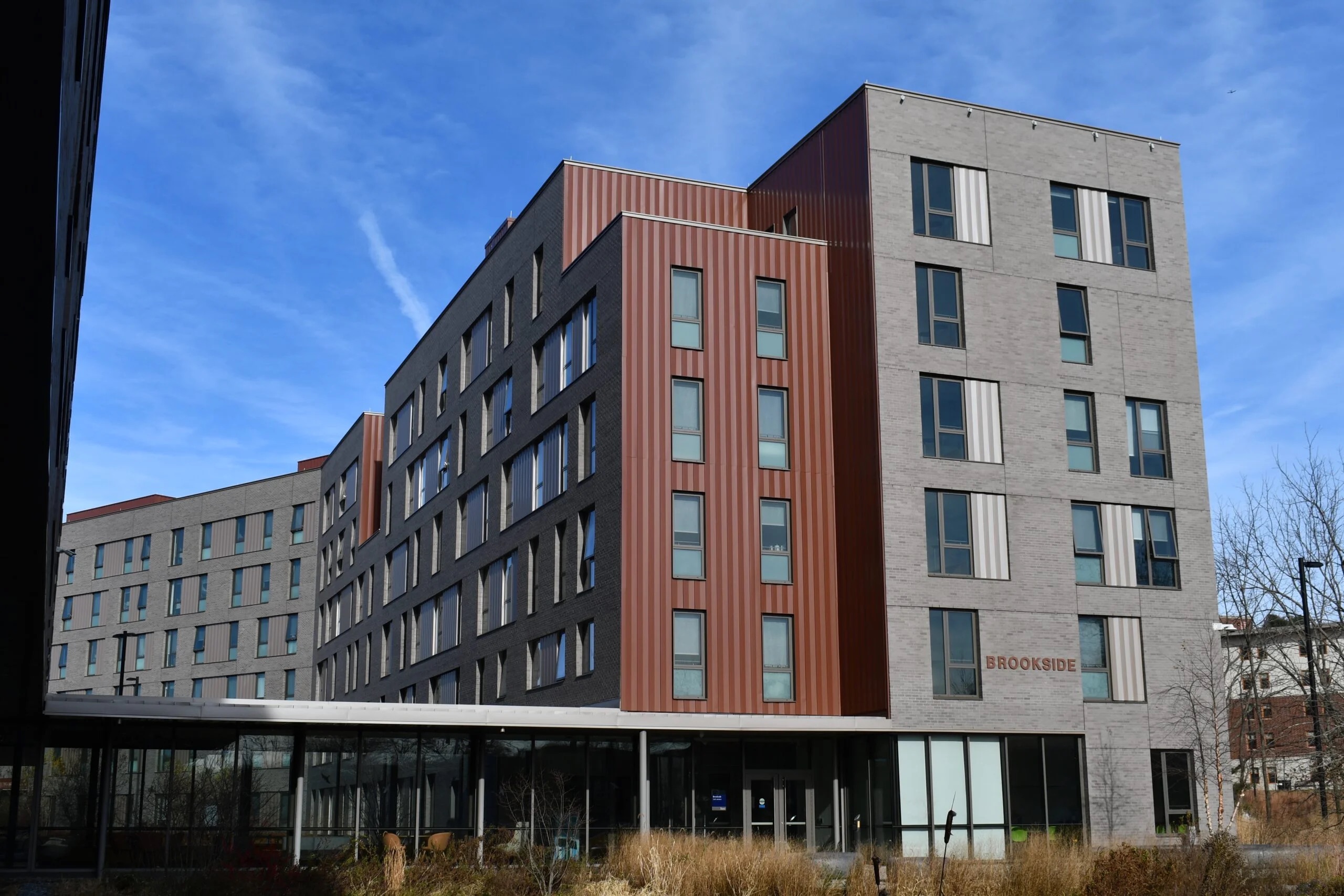Mirror covered up in Campus Rec Gyms to encourage students to focus on how they feel rather than how they look. PHOTO CREDIT: Maddie Bataille | Photo Editor
students have a greater risk of developing an eating disorder than any other age group, acCollegecording to the Child Mind Institute (CMI).
CMI reported as high as 20% of females and 10% of male students from ages 18-21 develop an eating disorder.
Attributed to being in an environment that feeds on social pressure, eating disorders are more common among college students as they feel the need to keep up with their peers.
Recognized during the last week of February, National Eating Disorder Awareness (NEDA) week’s ultimate goal is to help spread awareness and hope to those affected by eating disorders.
NEDA was created in 2001, when the Eating Disorder Awareness & Prevention and American Anorexia and Bulimia Association merged.
Since then, the non-profit organization has encouraged awareness and prevention of eating disorders through education and resources.
Last week, the University of Rhode Island recognized NEDA week through a variety of programs to help educate students and provide them with useful resources on campus.
Assistant Director of Health Promotion and Wellness at URI Health Services, Jessica Greene, spoke about what the programs aimed to provide for students.
“The week highlights issues prevalent on college campuses,” Greene said. “Concepts like body image, self confidence, self esteem and how we talk about our bodies.”
Greene said that the programs focused on body positivity and spanned from speaking about how to spot warning signs and help a friend with an eating disorder to more specific talks about effects of eating disorders, such as Relative Energy Deficiency in Sport (RED-S).
Greene said that the effort put into helping NEDA week have successful programs was nothing shy of a group effort.
Campus Recreation spread important information about eating disorders throughout the week. In their group exercise programs, mirrors were covered for the week to encourage students to focus on how they feel, rather than how they look.
Group Exercise Instructor Mollie Melnick spoke about how Campus Recreation advocates for mental and physical wellness.
“It [NEDA week] is a time to be cognizant of the fact that it [eating disorders] is a mental and a physical disease,” Melnick said. “It’s something that we need to be aware of not just as individuals, but as a society.”
Melnick said that during her classes, she incorporates breathing exercises into the workouts as something to bring more mindfulness to her class.
“At the end of class, we focus on something good that we can take away from how you’re feeling in the moment and something bad you can leave behind when leaving this space,” Melnick said.
The prevalence of eating disorders in college students, according to CMI, is partially due to being surrounded by a competitive environment.
Greene discussed how specifically living in the age of social media adds an extra level of stress on young people today.
“We follow trends we think might be healthy, but are actually very unhealthy,” Greene said. “Whatever we see online is a glimpse of the truth, but young people still strive to follow those trends.”
Greene talked about how typically there is something beneath the eating disorder, explaining how controlling how one eats is a coping technique for the person.
When signs are noticed, Health Services, according to Greene, make sure that counseling, therapy and treatment are all considered.
Dietician at URI Health Services, Kelli Kidd, described some of the warning signs for eating disorders.
The effects are not just mental, but also physical. Kidd said that when screening, she looks for physical signs that can look like malnutrition. Signs include gastrointestinal concerns, like bloating, having a hard time regulating temperature, chronic illness and hormonal imbalances.
Kidd said hormonal imbalances in females would include irregular or missed menstrual cycles, while for males would include decreased libido.
“There isn’t one identifying factor,” Kidd said.
However, withdrawing, lack of energy, not engaging in social activity or low mood can warrant some concern.
Kidd suggested that if you’re worried about someone, approaching them and saying “I’m concerned because of these specific things that I’m observing,” is a good starting point.
However, being aware of what services are available on campus can help.
According to Kidd, physicians and nurses at Health Services are trained to help students experiencing eating disorders. In addition, counseling services as well as other support groups are also available to help students.
Kidd said that we can focus on making eating disorder awareness year round by creating supportive spaces.
“Embracing and nourishing our bodies consistently and eating where it’s joyful will help keep our bodies and minds healthy,” said Kidd. If you or someone you know are experiencing an eating disorder, please visit the URI Health Services Website.




